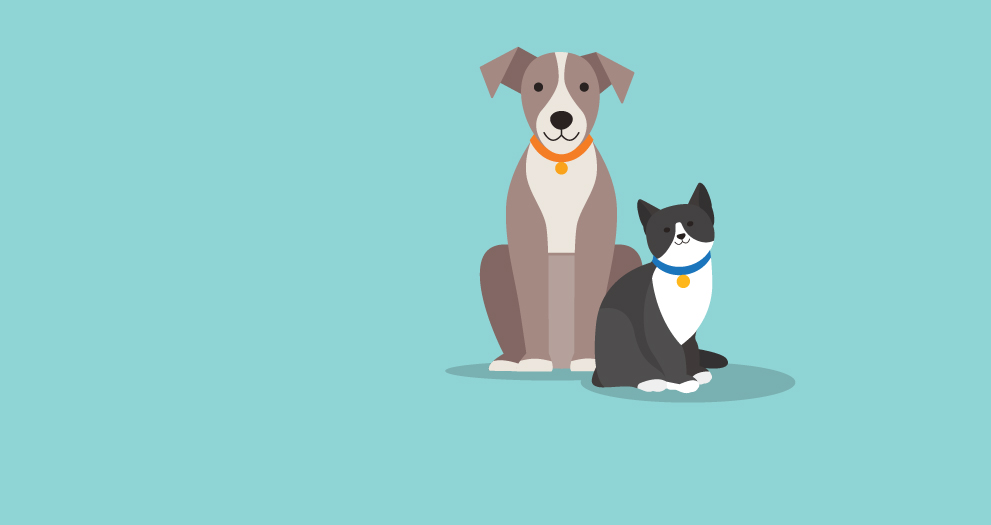Published October 17, 2019.
Thinking of getting a pet? Consider the costs.
A family pet can bring companionship and joy — and some unexpected costs.
Growing up, Keith Appleton had a golden retriever and cats. Now he's married and has a toddler, but he's not ready to commit to a pet. As his son gets older, Appleton thinks they'll want a dog. "They bring a lot of joy to the family," he said.
Pet costs concern Appleton, an education outreach officer for STCU. A large breed, like a golden retriever, costs owners about $1,000 a year for food, veterinarian visits, toys, treats and other standard costs, according to the American Society for the Prevention of Cruelty to Animals (ASPCA). For cats, it's about $800. And that doesn't count emergencies, which can cost thousands more.
"I've heard so many stories of people who go into pet ownership without thinking about any of those things," said Appleton, a veterinarian's son. "Nobody wins, including the animal."
While it's true pets can be expensive, there are things you can do to keep your pet budget in check, said Charlie Powell, public information officer for Washington State University's College of Veterinary Medicine. Here are some of his hints:
Visit the vet.
Studies show that if you bring your dog to the vet twice a year, you'll spend less money, and it will live longer, Powell said. That's because the vet will likely spot and treat health problems early on.
Be prepared.
There are a lot of expenses people don't think about, Powell said. Owners can reduce costs by taking care of their pets' teeth and getting pets spayed or neutered. For renters, another surprise might be the amount of the pet deposit.
“People don't understand that an 11-foot boa needs its own bedroom,” Powell says.
Be disciplined.
Obedience training is crucial, Powell said. Especially the command "stop." "The more obedient the dog is, the less expense you'll have from emergencies," he said.
Get insured.
While many financial advisers say pet insurance isn't worth it, WSU's vet school recommends it. Before signing up for insurance, understand and check the policy to find out what it covers and compare the cost of premiums to what you typically spend on vet care.
Big pets mean big costs.
Puppies can grow to be dogs weighing 80 or more pounds. And boa constrictors will outgrow that old fish tank, Powell said. "People don't understand that an 11-foot boa needs its own bedroom," he said.
Understand your limits.
If your pet has cancer or gets hit by a car, "You can be looking at four or five big digits to treat the pet," Powell said. Some people will go into debt. Other people will decide it's too much.



